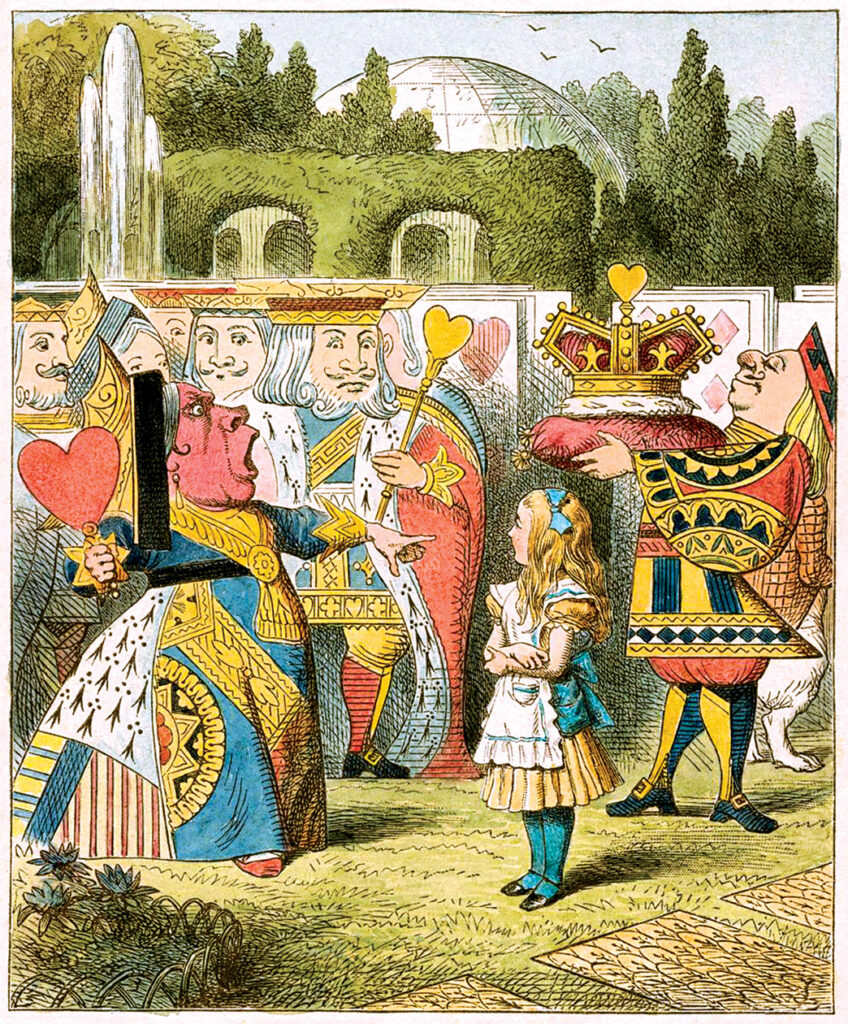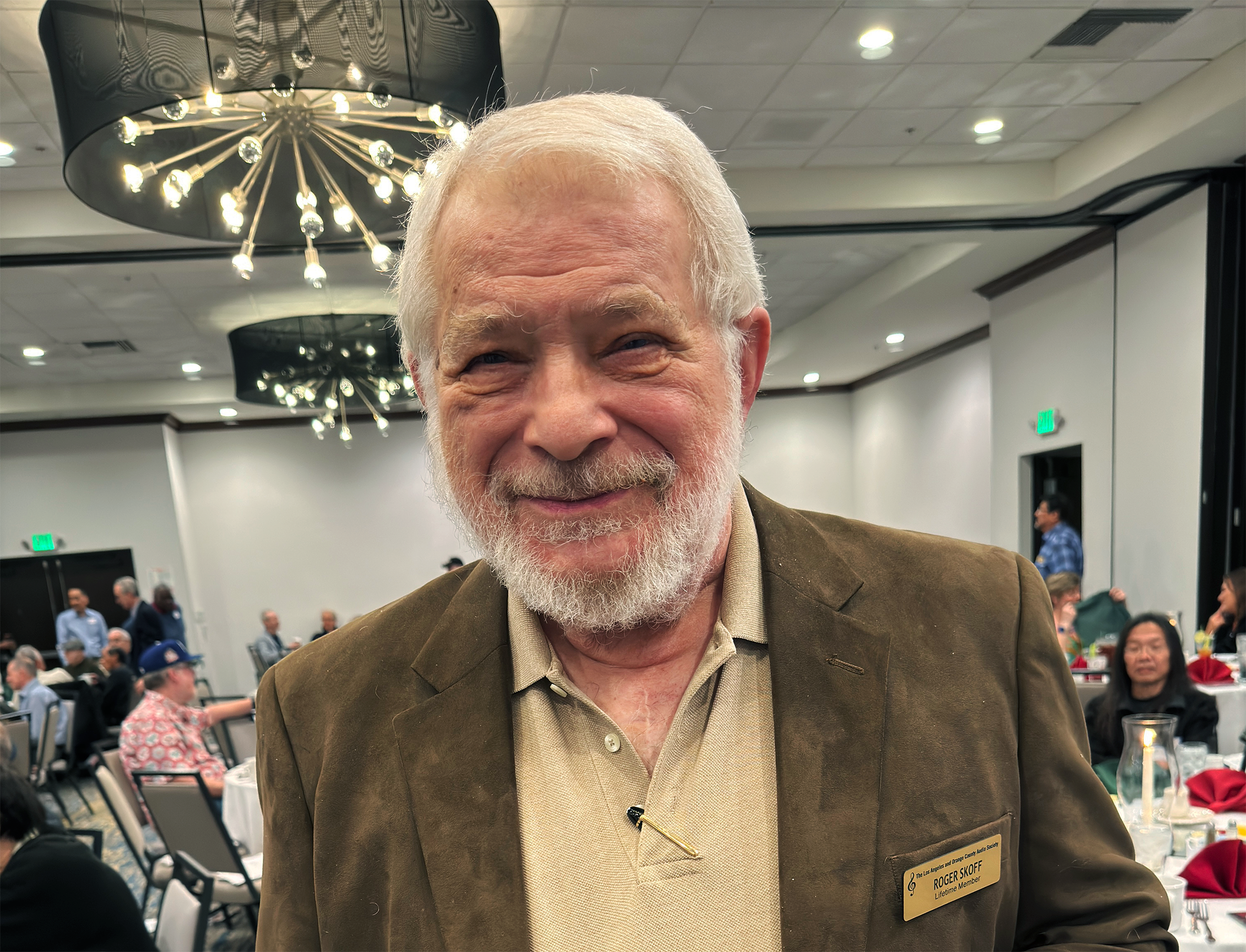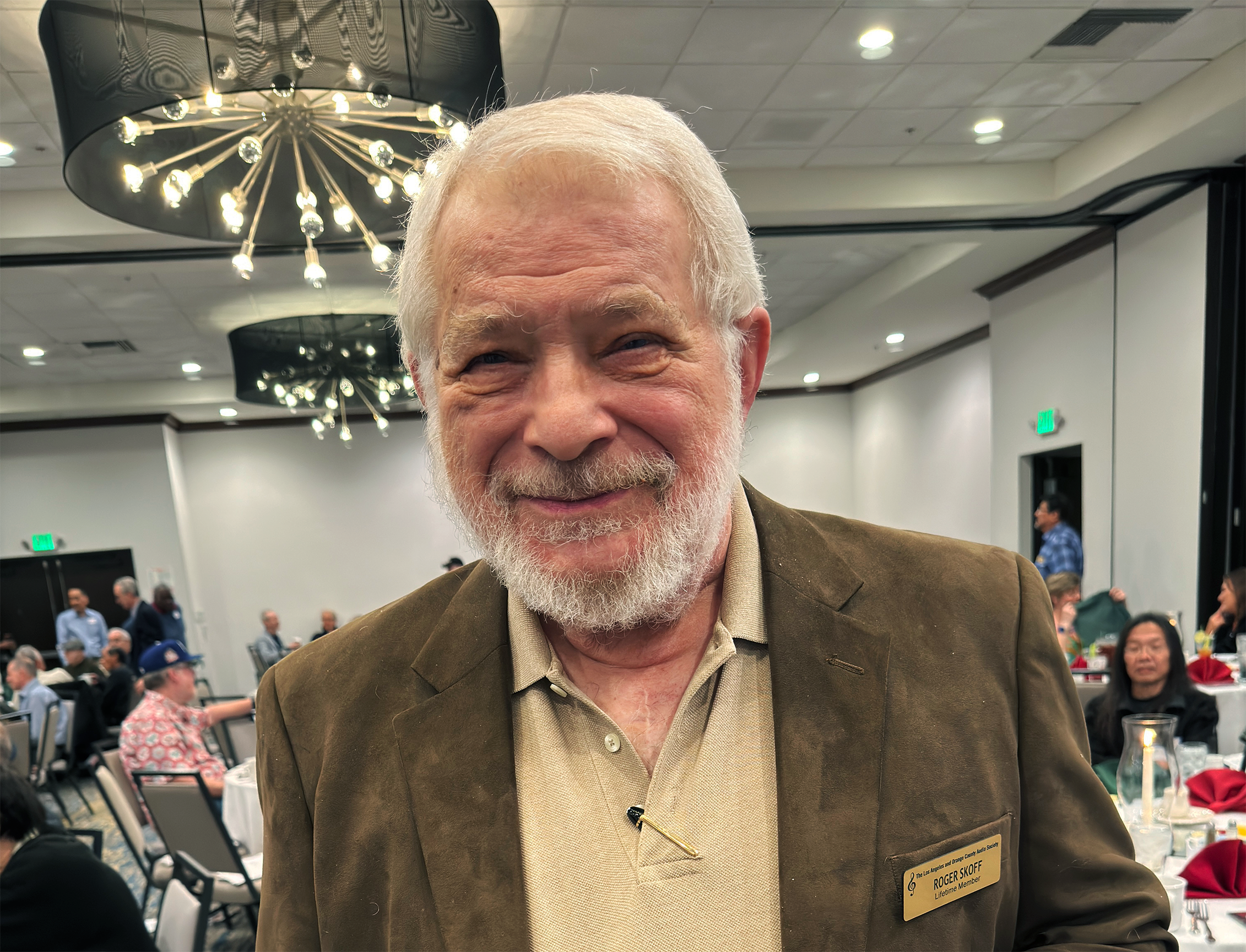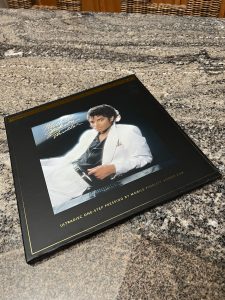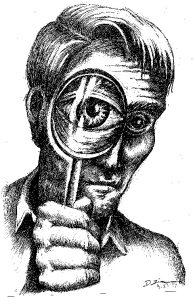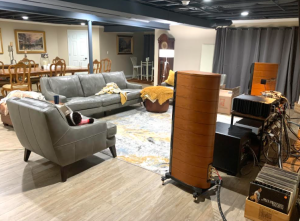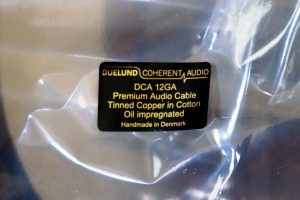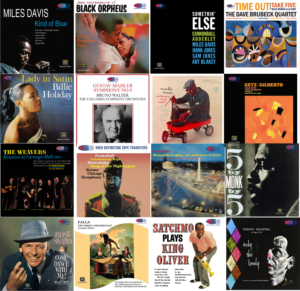For a change, Roger Skoff wants to ask your opinion instead of just telling you his…
I'm old, and quite possibly out of it, so what I see going on in our hobby may very well be completely wrong. I hope it is.
I became a HiFi Crazy (as we kids used to call ourselves), in 1954, when I was twelve years old.
Back then, we (the kids of the day) were wild about music, and even if we weren't, we claimed to be, just to fit in. The age of jitterbugging was not long gone, and The Twist was still yet to come, but there was some truly wonderful music back in the fifties and sixties, and if you wanted to start a conversation, or meet somebody new, or just kill time, talking about the latest Rock 'n Roll blockbuster was the thing to do.
Not only was the music exciting to us, but so was the gear to play it on. McIntosh, Fisher, and Scott electronics were already big names in HiFi electronics, and Marantz was about to happen. Many of the companies that built PA speakers (Electro-Voice, James B. Lansing [later shortened to JBL], University, Altec, Bozak, and others) were already well into bringing out speaker lines for home HiFi, and revolutions like time aligned drivers and new acoustic suspension bass were just over the horizon. Stereo was already making a splash in the movies, and just a few years off, in 1957, the first commercial stereo LP would be released (Dukes of Dixieland, Volume 2, on Audio Fidelity records). With that, home high fidelity music would see the first o a number of real "booms"—periods of massive public interest and acceptance—that would eventually put a HiFi "set" or stereo system into just about every American household.
That enthusiasm's no longer the case, today, and it hasn't been for at least the last several years, to the point that many of us are sincerely concerned about the future of our industry and our hobby and are actively looking for things to do to bring it back to its earlier popularity.
There have always been people who, for whatever reason have never gotten into having a high-quality home music source. You know who I mean—the ones who look at (or even listen to) your system and say something like "Well, I'm sure that's fine for you, but I could probably never hear the difference." Or who would ask, when you play something for them with great sound, great imaging and soundstaging, and perfect tonal balance, "Where's the bass?"—because their only experience with music has been a juke box, a "boomer" car radio, or a PA system, all with the bass control sets at "11."
Recently, things have gotten even worse, and I've been running into more and more people who don't even know what the words "HiFi," "High Fidelity," or even "Stereo" mean. They've simply never heard of them, and they think that their home is well-equipped—or even trend setting if they have a Bose radio, a surround-sound system for their TV, or an Alexa or similar product that plays lo-fi non-stereo music for them at a voice command.
And that kind of sound quality is okay for them, I guess, because neither today's music nor people's interest in it are anything like what they used to be, even just a few years ago.
There may not be much that we can do about the music, but there does seem to be a number of things that our industry could try to bring people back into the fold or possibly even to entice them into it for the first time. I'm going to tell you some of them and, if you'll please give me your thoughts or other suggestions in return, I'll try to pass them along to where they'll do the most good.
One idea is simply to form an Industry Association or other organization to spend some money, advertise, do some PR, and let the general public know that we are here; that what we have and do is great fun; and that they might like it, too.
One step that's already being taken is the greatly increased number of HiFi Shows that are being held everywhere to show off our goods. I don't know how effective they are, though, in bringing in new people and, if it were me, I would drop the price of admission to less than the cost of a movie ticket. That might bring in all sorts of people looking for something to do for the day and—who knows—some of them might be hooked and join our ranks. One thing that would definitely help the Shows would be to lower their cost of parking. That's already been proven to keep people from coming back. If done wisely, the lowered costs would result in higher Show attendance, and that, economically and in every other way, would benefit everybody!
Another thing to consider is, yes, I know it's difficult in these inflationary times (remember that I'm a HiFi manufacturer, too)—to find a way to bring entry-level HiFi prices down to where newcomers can actually afford them. (I remember, some years ago, a friend of mine went into a High-End HiFi shop to buy "a record player." The store had nothing at all like what he wanted, and he got out of there as quickly as he could, telling me later that " They didn't have what I wanted, and all they did have was off-brand stuff that I'd never heard of, for more money than I paid for my car."
If there were such a thing as a modern HiFi set or stereo console—a nice, one-piece, good sounding (within the limits of possibility) piece of furniture, for a "fair" price, do you think people would buy it?
If not a console, how about "pre-curated" HiFi systems consisting of pre-selected high-value, combinations of everything needed (not necessarily all of the same brand) to get good sound at a good price without the buyer having to make the, possibly daunting, decision of what to select from what can easily look like altogether too many different options?
Another possibility is kits or DIY. One of the ways that many of us got started in HiFi when we were kids and had no money was by buying and building HiFi kits. (I built a Heathkit FM tuner and two EICO tube amplifiers.) It was fun and it was cheap and most of the stuff we built was pretty good. (Dynakits were terrific—even by modern standards.) If more kits were available or even more Do-It-Yourself parts (with instructions for using them) and people knew about them, do you think they would buy them? Who might the buyers be? More kids? Budget audiophiles? Do you think kits would have any appeal, just as hobbies, to people not already into HiFi?
Please comment on these and suggest any other ideas you may have. And also for making the music better, if you can think of them. I miss the Beatles, Pink Floyd, and Leonard Cohen. Some good NEW classical music would be welcome, too.
Roger S. Scott portrait from the LAOC Gala, 2023, and image processing by David W. Robinson. Soldering iron drawing by Bruce Walker. Alice in Wonderland illustration by Sir John Tenniel, in the public domain.






